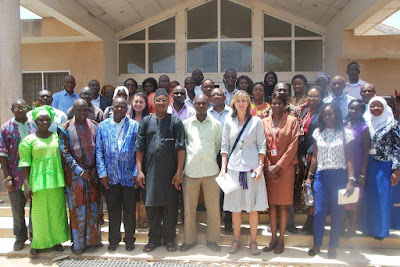Ngetcell-Banjul (The Gambia) Dr Charles
Sagoe-Moses, the World Health Organisation representative in The Gambia, has
said that there is a major decline in global Malaria cases and deaths since
2000 and that the progress was made possible through the massive expansion of
effective tools to prevent and treat malaria, such as insecticide-treated
mosquito nets, diagnostic treating and malaria medicines.
Dr Charles Sagoe-Moses was speaking on Wednesday during a media briefing
on the forthcoming World Malaria Day (WMD) commemoration at the National
Malaria Control Programme’s conference room in Kanifing.
He said the Gambia is implementing nearly all available malaria control
prevention and control interventions and the WHO country office will continue
to provide guidance on evidence-based strategies to better target malaria
interventions, and strengthen the existing health systems towards a
malaria-free Gambia.
“To achieve the targets of the global strategy, annual investment for
malaria control needs to triple from current levels, reaching US$8.7 billion
annually by 2030, the strategy, adopted in May 2015 by the World Health
Assembly, aims to dramatically lower the global malaria burden over the next 15
years,” he added.
The theme of this year’s WMD is: ‘End Malaria for Good’, and the
commemoration is scheduled to take place on 25 April at Farafenni, North Bank
Region.
The Programme Manager at NMCP, Balla Kandeh, said WMD represents a
chance for all stakeholders, be it government, a company or an individual, to
reflect and make a difference in the future.
“The Roll Back Malaria (RBM) partnership in The Gambia has been working
to mobilise global support and resources to reduce the malaria burden and
together we can combat and eliminate malaria in the Gambia,” Kandeh said.
“Partnership has been and will remain strong in The Gambia, but there is
room for other sectors to join in so that together we can combat malaria. The
private sector in The Gambia should, therefore, come forward and join the fight
against malaria as it is the most competent sector to mobilise the much-needed
resources to meet the challenges,” he added.
Malaria is caused by parasites that are transmitted to people through
the bites of infected female mosquitoes. P. falciparum is the most deadly
malaria parasite and the most prevalent in Africa, where malaria cases and
deaths are heavily concentrated. The first symptoms of malaria – fever,
headache, chills and vomiting – usually appear between 10 and 15 days after the
mosquito bite. Without prompt treatment, P. falciparum malaria can progress to
severe illness and death.
WHO recommends a multi-pronged strategy to prevent, control and
eliminate malaria. Key interventions include: the use of insecticide-treated mosquito
nets and indoor residual spraying, diagnostic testing, and treatment of
confirmed cases with effective anti-malarial medicines. In recent years, these
measures have dramatically lowered the malaria burden in many settings. Malaria
transmission continues in many countries around the world however, and causes
hundreds of thousands of deaths each year.
By Abdoulie Nget

No comments:
Post a Comment